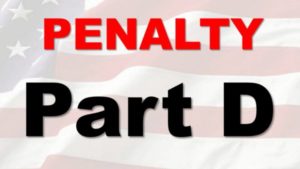Medicare Eligibility: Who Qualifies and When?

Wondering if you’re eligible for Medicare coverage? You’re in the right place!
Understanding Medicare eligibility can feel complex, but it’s essential to secure your healthcare coverage without confusion. In this article, we’ll clearly outline Medicare eligibility requirements, including age-based qualifications, special circumstances for early eligibility, and the specific criteria for Medicare Parts A, B, C, and D.
By the end, you’ll know exactly who qualifies for Medicare and when—empowering you to confidently manage your healthcare coverage.
Let’s dive in!
Medicare Eligibility Overview
To qualify for Medicare, individuals generally must meet one of the following criteria:
- Age 65 or older
- Under 65 and receiving Social Security Disability benefits for 24 months
- Diagnosed with End-Stage Renal Disease (ESRD)
- Diagnosed with Amyotrophic Lateral Sclerosis (ALS), also known as Lou Gehrig’s disease
Here’s a deeper look into each eligibility category.
Medicare Eligibility at Age 65
Most people become eligible for Medicare at age 65. If you’ve paid Medicare payroll taxes for at least ten years (40 quarters), you’ll qualify for premium-free Medicare Part A (hospital coverage).
Who gets Medicare Part A automatically at 65?
- Individuals already receiving retirement benefits from Social Security or the Railroad Retirement Board (RRB).
- Individuals eligible for these benefits but who haven’t yet applied (they must manually enroll).
If you’re not eligible for premium-free Part A, you may pay a premium of up to $518 per month (2025).
Medicare Eligibility Under Age 65
You may qualify for Medicare before age 65 under certain circumstances:
Disability Eligibility
- If you’ve received disability benefits from Social Security or RRB for at least 24 consecutive months, you’ll automatically enroll in Medicare Parts A and B.
End-Stage Renal Disease (ESRD)
- If diagnosed with ESRD (permanent kidney failure requiring dialysis or transplant), you must manually enroll in Medicare.
Lou Gehrig’s Disease (ALS)
- If you have ALS, you’ll automatically receive Medicare Parts A and B starting the same month your disability benefits begin.
Medicare Part B Eligibility and Premiums
Anyone eligible for Medicare Part A (premium-free or paid) can enroll in Medicare Part B (medical insurance).
- In 2025, the standard monthly premium for Part B is $185.00.
- Individuals with higher incomes may pay increased premiums.
- Delaying Part B enrollment beyond your Initial Enrollment Period can result in a penalty—a 10% premium increase for each year you delayed enrolling.
Who Qualifies for Medicare Part C (Medicare Advantage)?
Medicare Part C, or Medicare Advantage, is offered by private insurers approved by Medicare. It combines Parts A and B, sometimes adding additional benefits like vision, dental, and hearing.
Eligibility Criteria:
- You must already have Medicare Parts A and B.
- You must reside within the chosen plan’s service area.
Enrollment Periods:
- Initial Enrollment Period (IEP): Begins three months before the month you turn 65 and ends three months after.
- Annual Election Period (AEP): October 15 to December 7, coverage begins January 1 of the next year.
- Special Election Period (SEP): Available under certain qualifying life events (e.g., moving or losing other insurance).
Medicare Advantage is optional, but you must continue paying your Medicare Part B premium.
Medicare Part D Eligibility (Prescription Drug Coverage)
Medicare Part D helps cover prescription drug costs. Private insurance companies approved by Medicare offer Part D.
Eligibility:
- You must be enrolled in Medicare Part A and/or Part B.
- Available to:
- Individuals 65 or older.
- Individuals under 65 with disabilities (after receiving benefits for 24 months).
- Individuals diagnosed with ESRD or ALS.
Enrolling in Part D can significantly reduce your prescription medication costs.
Quick Reference: Medicare Eligibility Checklist
Here’s a simplified checklist to quickly determine if you’re eligible:
✅ You’re age 65 or older.
✅ You’re under 65 and receiving disability benefits for at least 24 months.
✅ You have End-Stage Renal Disease (ESRD).
✅ You have ALS (Lou Gehrig’s disease).
✅ You or your spouse worked and paid Medicare payroll taxes for at least ten years.
Discover Your Ideal Medicare Plan with Plan Medicare in New York!
Navigating Medicare eligibility doesn’t have to be challenging. You’ve now learned the essential qualifications and timelines. Let Plan Medicare simplify your healthcare journey. We provide personalized support and expert guidance tailored specifically to your needs.
Ready to enroll or have more questions?
📞 Call us today at 516-900-7877!
Frequently Asked Questions (FAQs)
How can I discuss my Medicare eligibility with someone?
- Simply call us at 516-900-7877 or register for an online Medicare account here.
Is there an income limit for Medicare eligibility?
- No income limit exists for Medicare eligibility. However, higher incomes may result in increased premiums for Parts B and D.
Do Medicare Parts A and B have different eligibility requirements?
- Yes. Part A eligibility depends on age, disability status, and Medicare tax history. Part B eligibility usually aligns with Part A, but enrollment isn’t automatic unless you already receive Social Security or RRB benefits.
Does Medicare provide full coverage?
- No single Medicare plan covers all healthcare costs. Most individuals supplement Original Medicare (Parts A and B) with additional plans such as Medicare Advantage, Medicare Supplement (Medigap), or Part D prescription drug plans to ensure comprehensive coverage.






